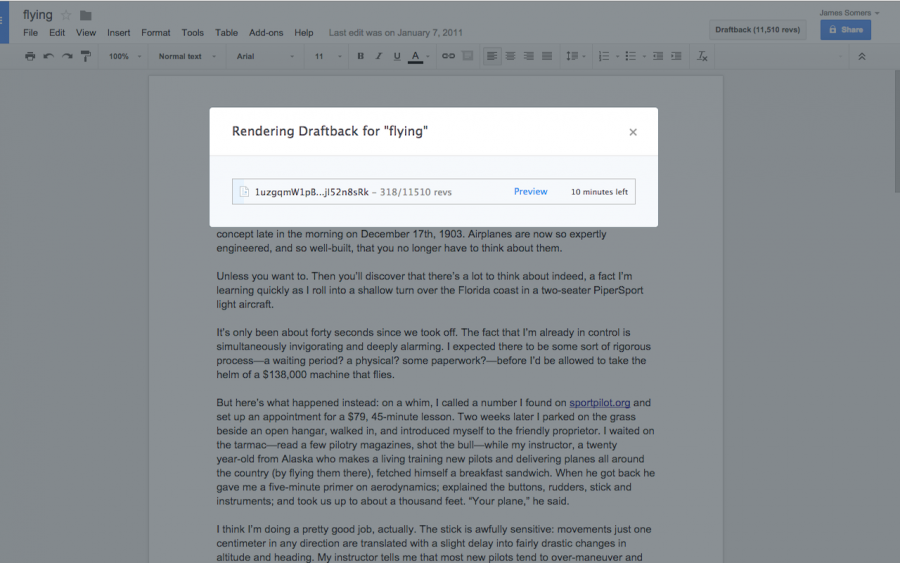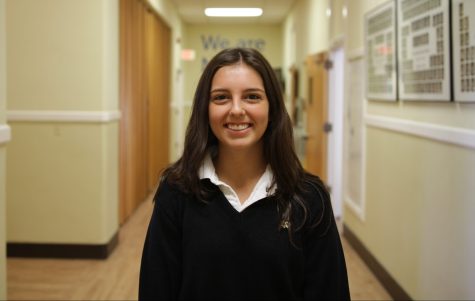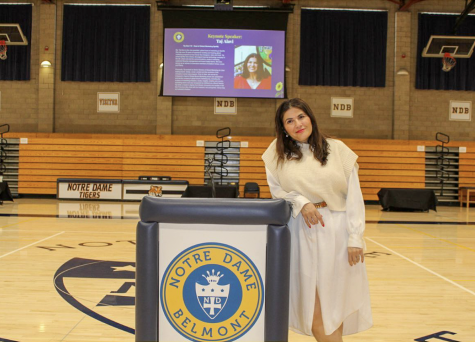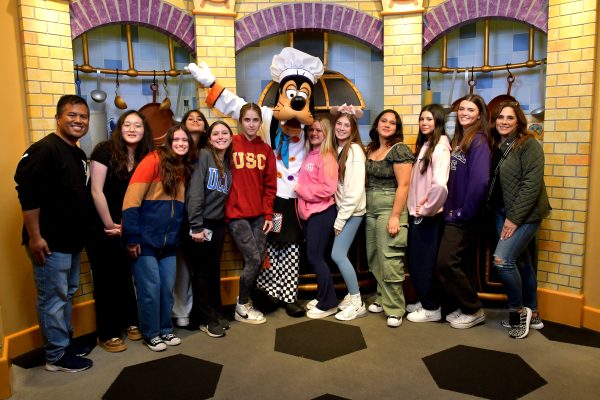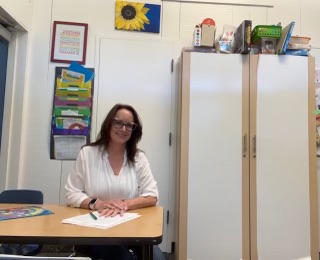The AIRB: Defending academic integrity
The Catalyst / SCREENSHOT FROM CHROME WEB STORE
Draftback is a Chrome app that turns a gDoc revision into a “film”
In the back of the NDB student planner is a section labeled “Academic Integrity.” It informs students about what happens if they act against the school’s standards of academic honesty. It defines the different forms of academic dishonesty, including cheating, impersonating, and plagiarizing. And, it describes the procedure that students are subjected to if they are suspected of an “academic breach.”
All students have heard of the Academic Integrity Review Board or AIRBoard, for short. They know that is where they will go if they are caught plagiarizing their work or worse.
The AIRBoard consists of an administrator, a counselor, and a small group of teachers. They meet only when there is a case brought to them. At the “hearing,” they listen to both the accusing teacher and the suspected student and then, based on the evidence, they decide whether or not a breach was committed and recommend next steps.
The Catalyst interviewed Associate Head of School for Academics Anne Schaefer-Salinas about the AIRBoard and her role on it. She began, “I facilitate the meetings: I have pre-meetings with students; I inform parents; and, I have the final meeting with the students to let them know what the decision of the AIRBoard was.”
Students who appear at a hearing are allowed to tell their side of the story and bring an advocate, usually a parent, who can vouch for their character.
If a student is found guilty, she is given a series of tasks to complete.
They vary and depend on the severity of the breach.
Schaefer explains, “It’s always individual — based on the student, the case, and what the AIRBoard feels is going to be the most useful for the student. It can be anything from writing an apology letter, having a face-to-face meeting, doing some Notre Dame service hours with the teacher whose class it involved.”
Most students are afraid of the AIRBoard because of the stigma of being known as a plagiarist by their teachers and peers. They get paranoid uploading their essays to TurnItIn.com, a plagiarism-prevention website used by the school that takes student work and searches the Internet for similar content. It gives an essay a rating based on how much of it appears elsewhere. A low percentage implies most of it was written by the student. A high percentage implies the student copied it from somewhere.
Another resource that teachers use to identify plagiarism is “Draft Back,” a Chrome extension that makes a video out of a Google Doc’s revision history and illustrates what and when something is added or deleted. It even calculates statistics, including the amount of time that each individual spends typing material on the gDoc.
Although these tools are available to teachers, English teacher Robert Rojas say students should not be afraid of them. He explains, “Just because your work comes back with a high percentage on TurnItIn.com doesn’t mean you should expect to appear in front of the AIRBoard right then and there. The website gives us a similarity report and identifies where certain phrases and sentences come from, and, sometimes, there really is only so many ways to say the same thing. Students and teachers need to take that into consideration.”
Some cases are complicated or difficult to decide. Rojas comments, “Once you accuse a student of plagiarism and go through the AIRBoard process, it’s hard to go back to the way things were. Sometimes, there are lingering trust issues on both sides.”
Commenting on how plagiarism affects his curriculum, English teacher Adam Currier says, “…When you’re building the curriculum only for the students’ benefit and they go outside to plagiarize work and deny themselves that benefit, not only is it weakening the curriculum, but it’s weakening their future skill.”
He further explained, “[What] I think should really resonate with students before they think about plagiarizing is that there’s really three things you do when you plagiarize work: You disrespect the teacher and curriculum, you disrespect yourself, and you disrespect your classmates, especially when we’re in a highly competitive environment where GPA and honors matter.”
When asked if the AIRBoard means to punish students, Schaefer says, “At the heart of the AIRBoard is the idea of restorative justice.”
She continued, “We know that students make mistakes. This is a learning institution, and so we want to give them an opportunity to learn from those mistakes before they really matter: By making the same mistake in college and getting kicked out or making the same mistake in a job and getting fired.”
In response to a question on how students should avoid appearing before the AIRBoard, Schaefer responded, “Nothing is ever so bad that you have to cheat, and if you feel like you have to, go talk to somebody first.”

